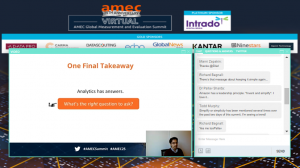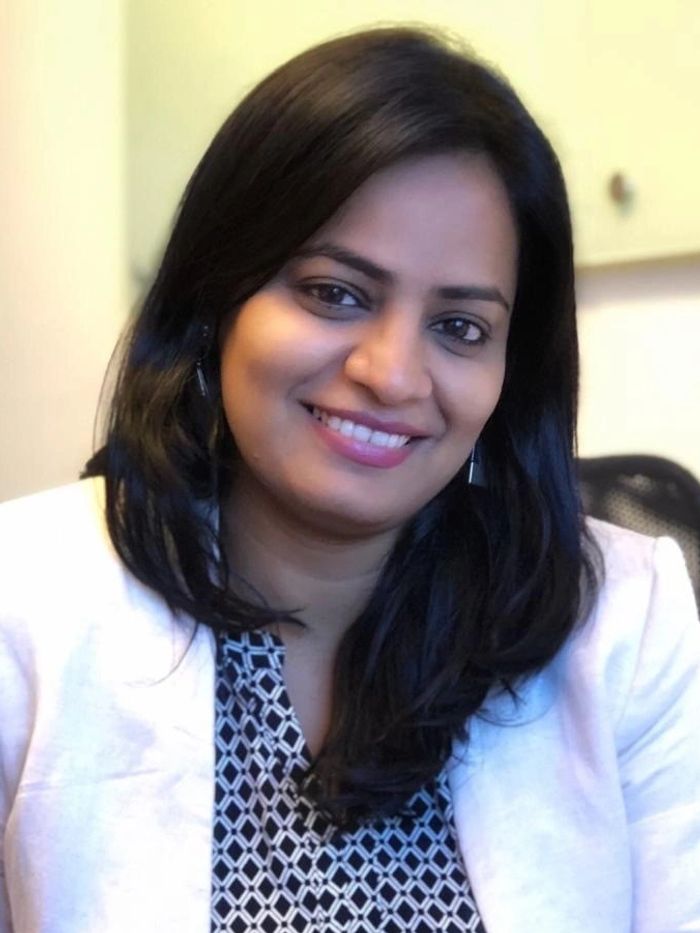Another interesting session I attended at the AMEC Virtual Global Summit of Measurement on Communication with the theme Accountability: Planning, Purpose and Proof: Day 2 was a session on ‘Using Analytics to Solve Real Life Problems” by Dr. Pallav Sharda, a renowned medical professional who is the Global Lead, Healthcare at Google Cloud.
Dr Sharda has a very impressive career spanning more than two decades in digital health products working at GE, Northwestern University, Kaiser Permanante and Opium UnitedHealthcare before starting his stint at Google Cloud. He has also authored a book ‘Before Disrupting Healthcare’ what innovators need to know, a must read for those innovating in health space.
 During the presentation, Dr Sharda shared his journey with analytics and how he has applied it to on rich data from the healthcare industry to solve real life problems in his career. In his presentation he has spoken about four real life stories and key learnings from that.
During the presentation, Dr Sharda shared his journey with analytics and how he has applied it to on rich data from the healthcare industry to solve real life problems in his career. In his presentation he has spoken about four real life stories and key learnings from that.
Let’s understand his journey and learn how crucial a role analytics play in our lives and in resolving important issues. Pallav in his session, used simple anecdotes to share with us these key learnings.
- >60% of analytics work is aggregation, harmonization
- It’s just not about sharing the final product or the analysis, It takes a lot to get the data to the state where it can be analysed and most of the work is in the process of pulling them together, reducing it or normalising it
- Analytics is fluid – can change with regulations
- Regulations and rules change from state to state for different age group, so when it comes to analysis of data of a larger demography it is dynamic and we need to be mindful of the regulatory environment and need to deploy very robust software which can understand these nuances
- Sometimes simple analysis can have an outsized impact
- Analytics doesn’t need to be complex, a simple analysis like taking sales data and applying it to geographic data can help you to track fraud and mitigate it.
- Insights, dashboards are not the end-goal. Action is. End users want action to those insights.
- A primary care doctor has a large panel of patience they take care of and they have database whose insights can be analysed and further recommend an action. So one can share actionable data which can be used for the end users benefit.
In short, analytics can give you answer to all your question but what’s important is to know what kind of question needs to be asked to get the right analytics. As Dr Sharda says, most of the analytical goals are met if the right question is asked. The same formula should be applied in our communications industry too. We know the power of data and analysis hence our goal should be to ask the right question before we start, instead on focusing on the outcome. Questions that merit a fruitful analytical report; what is the objective of the report? What is it that we want to achieve from this exercise? How will it benefit the receiver or the human kind?
AMEC which is in its 25th anniversary year, is the world’s largest media intelligence and insights professional body, representing organisations and practioners who provide media evaluation and communication research. The International Association for Measurement and Evolution of Communication popularly known as AMEC has grown from 7 members to about 200 now representing organisations based in 86+ countries worldwide and more than 1000 professionals dedicated to measurement and evaluation best practice across the globe. AMEC’s pioneering work in the field has included the development of the Barcelona Principles; Barcelona Principles 2.0 and most recently 3.0 the launch of the AMEC Integrated Evaluation Framework and the Measurement Maturity Mapper.
The views and opinions published here belong to the author and do not necessarily reflect the views and opinions of the publisher.



Be the first to comment on "Using Analytics to Solve Real Life Problems"